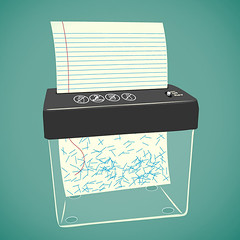CCCS provided these tips for spring cleaning our finances, clearing out clutter and getting organized. Tips #7 through #10 -- about record keeping, identity theft protection and credit reports -- are especially helpful.
"Organizing your finances can reduce stress and save you time and money," said Jessica Cecere, president of Consumer Credit Counseling Service (CCCS) of Palm Beach County and the Treasure Coast.
CCCS offers some simple steps to help jumpstart your financial spring cleaning:
1. Start by evaluating your current financial health- Log on to
CCCS or
www.cccsenespanol.org and take the financial health test. It will help you assess your financial risk and get a realistic picture of your current spending habits.
2. Create a system, and stick to it- You can organize your records in a filing cabinet, in hanging folders, or some other system, but choose one that works for you so that you will use it.
3. Develop a spending plan- Outline how you will spend, and save, your money. In addition to regular monthly expenses, such as housing, utilities, groceries, and insurance, you should also plan your spending for things like entertainment, lunches out, haircuts, and an occasional luxury. As rising gas prices continue to account for more of your monthly expenses, reduce spending where you can, such as eating at restaurants and your daily purchase of premium coffee. Don't forget to plan your savings too. If you have a spending plan, you are more likely to stick to it.
4. Track your income and your expenses -Use a calendar to note when you will receive income and also record when bills are due. Avoid late charges and unnecessary finance charges by paying bills on time. If you are mailing your payments, allow at least a week for them to arrive. If you pay on-line, be sure to adhere to deadlines by your bank or creditor to ensure payments arrive on time.
5. Record all spending, not just bills -That daily trip to the coffee shop, the few dollars you spend on lottery tickets, your highway tolls, and other "forgotten" expenses can quickly add up to hundreds of dollars each month and can stand between you and financial freedom.
6. Tax Organization-Start a tax folder for 2008 and start gathering information that will help reduce your stress at tax time. Include receipts for charitable gifts and out-of pocket medical expenses, documentation of work-related expenses like travel/mileage if not reimbursed, educational or child care costs, etc.
7. Out with the Old - Do you really need to keep that water bill from 1998? How about your tax returns? Keeping good financial records is a critical part of managing your household finances, and spring cleaning is a great time to review them, purging what you no longer need. These records can help you ensure timely payment of bills and avoid late fees, dispute errors on credit card statements, apply for retirement or disability benefits, file insurance claims, and more.
Bankrate (
www.bankrate.com) has an excellent table that summarizes how long to keep financial records. Here is a summary:
*Keep any tax-related records for seven years.
*Keep records of IRA contributions permanently.
*Keep quarterly retirement/savings plan statements until you receive an annual statement. If the numbers match, shred the quarterlies and keep the annual summaries permanently.
*Shred unimportant bank records after one year; keep the rest permanently.
*Keep brokerage statements until you sell the securities.
*Most of the time you can shred bills once you get a cancelled check. Keep bills for big items permanently.
*Keep credit card receipts to reconcile with your statements; then keep the statements for seven years.
*Paycheck stubs should be kept until you receive your end-of-year tax statements.
*Keep house records permanently.
8. Don't just throw away statements and other records you no longer need to keep. Discarded financial records are a prime target for identity thieves, who look for account numbers and personal information to use. Purchase an inexpensive cross-cut type shredder and make sure it is conveniently located so that you will use it-like right next to your garbage can. Shred all documents that contain personal or financial information, including credit card offers and receipts.
9. Review your insurance coverage - Review your life insurance policy to ensure it provides adequate coverage for your family. You can also save money by raising your deductibles on auto and homeowners, or renters, insurance. Every several years, shop rates, comparing policies point for point.
10. Request a credit report- Request a free copy of your credit report by logging on to
www.annualcreditreport.com or by calling (877) 322-8228. Carefully review your report and promptly address inaccuracies in writing. By regularly getting reports, you can keep tabs on your credit standing, address questions and protect yourself from credit fraud or identity theft."
source: CCCS______________
Digg!








